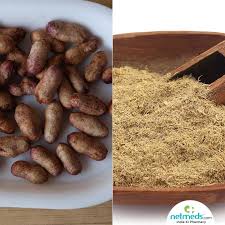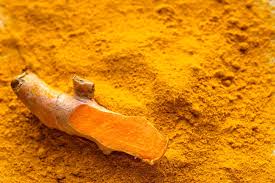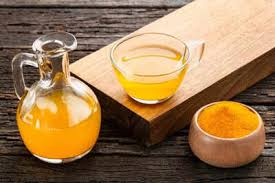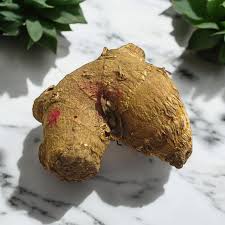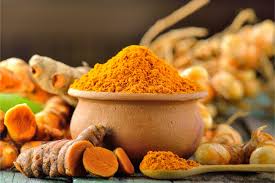
Is Jadi Buti Certification Necessary for Selling Online
With the increasing demand for natural remedies and herbal products, many entrepreneurs are interested in selling Jadi Buti (medicinal herbs) online. However, one crucial question arises: Is certification necessary for selling Jadi Buti?
Regulations and certifications play a key role in ensuring product authenticity, customer trust, and compliance with legal standards. In this guide, we will explore the importance of Jadi Buti certification, its benefits, and how to obtain the necessary approvals for selling herbal products online.
Long Description
- Why Certification Matters in the Jadi Buti Business?
Selling herbal products online requires strict quality control to gain consumer trust and ensure compliance with regulatory authorities. Certification provides:
✔ Product Authenticity – Ensures customers receive genuine and unadulterated herbs
✔ Legal Compliance – Avoids issues with government regulations and online marketplaces
✔ Higher Market Value – Certified products attract more buyers and premium pricing
✔ Global Expansion – Certifications allow you to sell products internationally
Without proper certification, you may face legal challenges, customer distrust, and restrictions on selling through major e-commerce platforms.
- Key Certifications Required for Selling Jadi Buti Online
A. FSSAI (Food Safety and Standards Authority of India)
Why It’s Needed? If your Jadi Buti is consumed as a food or health supplement, an FSSAI license is required.
How to Get It? Apply through the FSSAI online portal, submit lab test reports, and get approval.
Who Needs It? Herbal tea sellers, dietary supplement brands, and raw Jadi Buti sellers.
👉 Pro Tip: If you are selling only raw dried herbs, FSSAI may not be mandatory, but it is still recommended.
B. AYUSH Certification (For Ayurvedic & Herbal Products)
Why It’s Needed? If your Jadi Buti is used in medicinal formulations, an AYUSH license is necessary.
How to Get It? Register with the Ministry of AYUSH, get product testing done, and obtain approval.
Who Needs It? Brands selling Ayurvedic formulations, herbal powders, and Jadi Buti capsules.
👉 Important: AYUSH certification is mandatory for selling Ayurvedic medicines and herbal remedies.
C. USDA Organic / India Organic Certification
Why It’s Needed? If you claim your Jadi Buti is organic, certification is required to prove its authenticity.
How to Get It? Apply through the National Programme for Organic Production (NPOP) and undergo inspection.
Who Needs It? Farmers, herbal brands, and organic product sellers.
👉 Pro Tip: Organic certification helps in selling products internationally and attracts premium buyers.
D. GMP (Good Manufacturing Practices) Certification
Why It’s Needed? Ensures safe production, packaging, and quality control of herbal products.
How to Get It? Apply through government agencies or private certification bodies.
Who Needs It? Manufacturers of herbal powders, extracts, and capsules.
👉 GMP Certification is a must if you are producing Jadi Buti-based formulations.
E. Lab Testing & Purity Certification
Why It’s Needed? Verifies that Jadi Buti is free from chemicals, heavy metals, and adulterants.
How to Get It? Get your products tested at an accredited herbal testing lab.
Who Needs It? All Jadi Buti sellers who want to prove their product’s authenticity.
👉 Marketplaces like Amazon, Flipkart, and Ayurvedic stores often require purity test reports.
- Selling Jadi Buti Online Without Certification – Is It Possible?
Many small-scale sellers start selling Jadi Buti without certification. However, there are risks involved:
❌ Limited Selling Options – Most e-commerce platforms demand FSSAI or AYUSH certification
❌ Customer Distrust – Buyers prefer certified and lab-tested products
❌ Legal Issues – Regulatory bodies may ban uncertified products
To grow a successful and scalable business, obtaining certifications is highly recommended.
- Steps to Get Jadi Buti Certified for Online Sales
✔ Step 1: Identify the Type of Certification Needed
Selling as food supplements? → Get FSSAI License
Selling as Ayurvedic medicine? → Get AYUSH Certification
Selling as Organic Products? → Get USDA Organic/India Organic Certification
✔ Step 2: Get Your Jadi Buti Lab Tested
Approach an FSSAI or NABL-accredited lab for purity testing
Check for pesticide-free, heavy metal-free, and 100% herbal certification
✔ Step 3: Apply for the Certification Online
Submit applications via government portals (FSSAI, AYUSH, NPOP)
Provide lab test reports, business details, and necessary documents
✔ Step 4: Comply with Labeling & Packaging Rules
Mention certification numbers on product packaging
Clearly list ingredients, usage, and safety information
- Benefits of Certified Jadi Buti in Online Business
Benefit Impact on Business
Increases Customer Trust Buyers prefer verified and tested products
Legal Compliance Avoids penalties and restrictions from e-commerce platforms
Premium Pricing Certified products command higher market value
Global Market Access Certifications allow exports to international markets
Example: A certified organic Ashwagandha powder sells at a 30% higher price than a non-certified one. - Conclusion
While certification may not always be mandatory for small-scale sellers, it is highly recommended for long-term success in the Jadi Buti business. Certifications such as FSSAI, AYUSH, USDA Organic, and GMP not only help in building customer trust but also ensure legal compliance and better sales opportunities.


